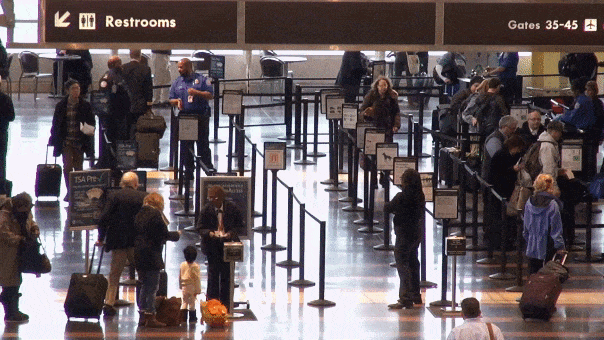
(iStock)
Keeping in touch with people back home doesn't have to break the bank when you are abroad. But chances are if you don't plan ahead, tapping into local phone networks when you're on the road can cost you a bundle, especially when you are overseas.
One trip I made to London for three days cost me over $2,000 in roaming fees, way more than the price of my airfare and hotel.
With a little planning and research you can avoid get caught out paying telecom companies big bucks. Here are 10 tips for saving on roaming charges while traveling internationally:
1. Call your service provider
CTIA The Wireless Association recommends that you first contact your current service provider to verify that your phone will have service in your travel destination, as countries use different mobile phone networks. You may be able to make calls while traveling, but data and text messaging services may be unavailable, so get the right information before assuming your phone will work while you are abroad.
2. Be aware of the roaming rates
If you determine that your phone will work, review the rates for using your phone in your travel destination. When a wireless carrier that is not your local one provides the necessary signal, it is called roaming. Keep in mind that you may be charged for incoming calls and text messages, which means you don't have complete control over your roaming costs.
The Federal Communications Commission has a guide about international calling that is broken down by service provider and smartphone, so this is a good place to start.
Don't be afraid to ask questions if you do not understand something. Roaming can get complicated, and unanswered questions could mean huge phone bills. See if it would be worth your while to add an international service plan of some kind.
Ask how your unlimited plan translates overseas. You may be charged per minute, and fees vary, based on the foreign country's network you are using. Don't forget to check with your provider to see how Internet usage comes into play. Remember to jot down the international customer care number for the service provider in case questions arise while traveling.
3. Consider alternatives
The FCC suggests looking into different options that may help you avoid roaming altogether. See about using a SIM card to turn your device into a local phone. It may be less expensive for you to buy or rent an entirely new phone, depending on how long you will be abroad. Prepaid SIM cards are another option.
4. Beware of how you use Skype
Skype and other Voice over Internet Protocol (VoIP) services are a great way to keep in touch with loved ones while you are away. However, you need to be mindful of how you use this technology.
Ken Grunski, president of pre-paid wireless telecommunications products company Telestial Inc., warns against using roamed data services for Skype because of the high cost of transmitting data.
Make sure you are connecting to free WiFi. In some countries, state-run telecommunication and Internet-providing companies block VoIP services like Skype, he adds.
5. Turn off
If you are using an iPhone, remember to turn off apps, data roaming and fetch data; these will use up data. When these update, they use up valuable data. Set your iPhone to airplane mode. Switch your setting to manual or push so you do not receive emails automatically.
6. Save your pictures for later
If you are using a smart phone, resist the urge to upload pictures from your mobile while roaming. Wait until you have Internet access or are home. Remember that you may be able to use WiFi to save on roaming charges.
7. Get an international charger beforehand
You don't want to get to your destination, only to have to shell out top dollar for an expensive charger. Research the country you will be visiting to see the voltage, frequencies and sockets that are used there. You may need an international charger and plug adapters to recharge your phone abroad.
8. Use landlines
If you want to contact someone who is staying at the same hotel, use the room phone instead of calling mobile to mobile. There may not even be a fee for receiving calls at the hotel.
9. Track your usage
"When traveling internationally, charges may not appear for 5 months," explains Al Subbloie, the chief executive officer of Tangoe, an Orange, Conn.-based communications software and services vendor.
Subbloie says that you cannot rely on the carrier website to monitor usage because it could be days or even weeks behind. Instead, Subbloie suggests installing an application on the device that monitors real-time data, voice and SMS usage. This will help you avoid astronomical surprises on your phone bill.
10. Use the least expensive means of communication
Texting may cost less than sending and receiving emails, or vice versa. Give the people who would be calling you the heads up not to leave messages if retrieving voice mails isn't budget friendly.
Check out WhatsApp Messenger -- a mobile messaging app that allows you to exchange messages without having to pay for SMS. WhatsApp uses the same Internet data plan that you use for email, so there is no cost to message.








































